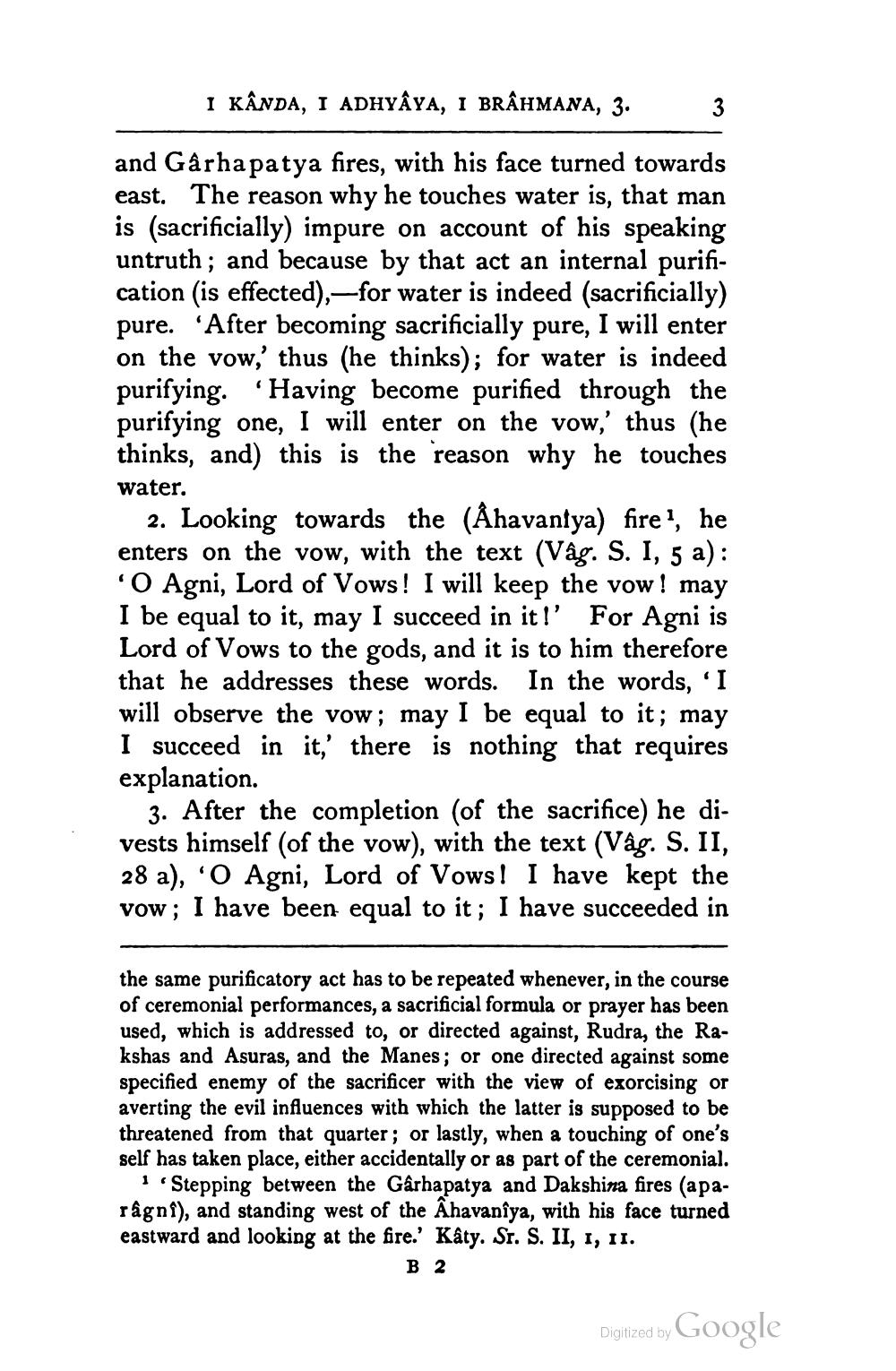________________
I KÂNDA, I ADHYAYA, 1 BRÂHMANA, 3.
3
and Garhapatya fires, with his face turned towards east. The reason why he touches water is, that man is (sacrificially) impure on account of his speaking untruth; and because by that act an internal purification (is effected),—for water is indeed (sacrificially) pure. ‘After becoming sacrificially pure, I will enter on the vow,' thus (he thinks); for water is indeed purifying. 'Having become purified through the purifying one, I will enter on the vow, thus (he thinks, and) this is the reason why he touches water.
2. Looking towards the (Åhavanfya) fire, he enters on the vow, with the text (Vâg. S. I, 5 a):
O Agni, Lord of Vows! I will keep the vow! may I be equal to it, may I succeed in it!' For Agni is Lord of Vows to the gods, and it is to him therefore that he addresses these words. In the words, ‘I will observe the vow; may I be equal to it; may I succeed in it,' there is nothing that requires explanation.
3. After the completion (of the sacrifice) he divests himself (of the vow), with the text (Vág. S. II, 28 a), 'O Agni, Lord of Vows! I have kept the vow; I have been equal to it; I have succeeded in
the same purificatory act has to be repeated whenever, in the course of ceremonial performances, a sacrificial formula or prayer has been used, which is addressed to, or directed against, Rudra, the Rakshas and Asuras, and the Manes; or one directed against some specified enemy of the sacrificer with the view of exorcising or averting the evil influences with which the latter is supposed to be threatened from that quarter; or lastly, when a touching of one's self has taken place, either accidentally or as part of the ceremonial.
1Stepping between the Garhapatya and Dakshina fires (aparâgni), and standing west of the Ahavaniya, with his face turned eastward and looking at the fire.' Kâty. SI. S. II, 1, 11.
B 2
Digitized by Google




